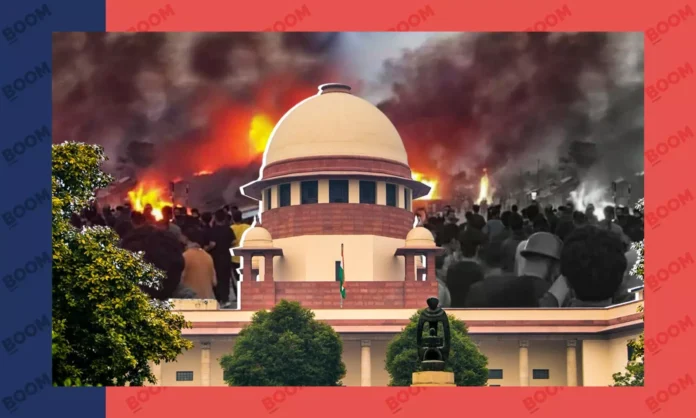In a significant judicial intervention, the Supreme Court of India has directed the transfer of a Kuki undertrial from Manipur to Assam for medical treatment. This decision comes in response to concerns raised by the Manipur High Court regarding potential threats to law and order in the region.
The undertrial, whose identity has not been disclosed in accordance with legal protocols, requires urgent medical attention that is reportedly unavailable in Manipur. The Manipur High Court had initially raised objections to the transfer due to concerns over maintaining law and order, citing potential disturbances that could arise from moving the undertrial out of the state.
However, the Supreme Court, after carefully considering the medical urgency and the security concerns, has decided to override these objections and prioritize the health and well-being of the undertrial. This decision underscores the judiciary’s commitment to upholding the right to medical treatment as a fundamental aspect of human rights, even in the face of logistical and security challenges.
The case has drawn attention not only due to the legal complexities involved but also because it touches upon broader issues of healthcare accessibility and the administration of justice in sensitive regions like Manipur. The logistical arrangements for transferring the undertrial from Manipur to Assam are expected to be coordinated by the respective state authorities under the supervision of the Supreme Court.
This development highlights the delicate balance that courts often need to strike between ensuring public order and safeguarding individual rights, particularly in regions where security concerns are pronounced. The Supreme Court’s decision reflects a nuanced approach aimed at addressing both the immediate medical needs of the undertrial and the potential security implications of their transfer.
Furthermore, the case has sparked discussions about the adequacy of healthcare facilities in certain states and the challenges faced by undertrials in accessing timely medical care. It underscores the need for systemic improvements in the infrastructure and procedures governing the healthcare of prisoners and undertrials across the country.
As the legal proceedings unfold, stakeholders will closely monitor the implementation of the Supreme Court’s directive and its broader implications for jurisprudence and public policy. The decision is likely to set a precedent for similar cases in the future, emphasizing the judiciary’s role in ensuring equitable access to healthcare for all individuals, regardless of their legal status.
In conclusion, while the Supreme Court’s intervention in directing the transfer of the Kuki undertrial for medical treatment to Assam navigates through complex legal and security challenges, it ultimately underscores the primacy of humanitarian considerations in judicial decision-making. This case serves as a reminder of the judiciary’s crucial role in upholding constitutional values and protecting the rights of individuals, even in the face of formidable logistical and security hurdles.


